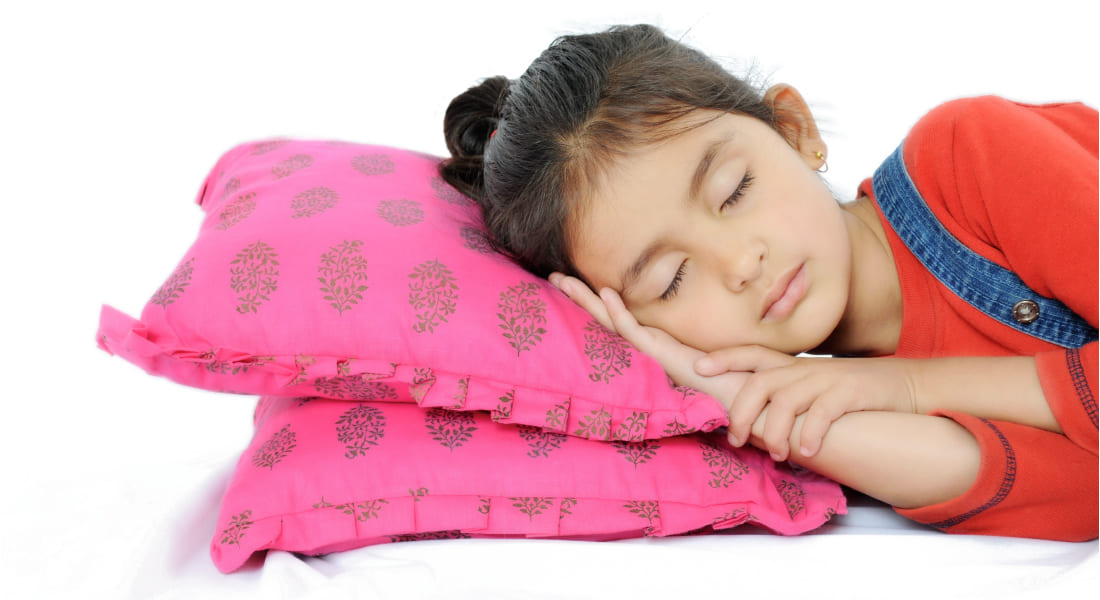Categories
Sleep problems in children: Tips to promote good sleep hygiene
Jul 02, 2022
Important parts of a child’s life which plays a key role in brain development and regeneration. Good sleep is key for normal development and the ability of a child to achieve full potential. Sleep evolves over time from a newborn who sleeps 14-17 hours a day to a school-age child who needs about 9-11 hours of sleep a day. There is no exact ideal sleep duration but it varies for each child, but there are published normal data which could be used as a rough guide.
Poor sleep can manifest as an irritable child, a child with poor concentration and a hyperactive child. Poor sleep quality can lead to poor academic performance. If parents are worried about poor sleep quality, they should seek the help of a specialist in this area.
Simple techniques such as good sleep hygiene are important. The role of technology, especially smartphones and constant media input on a child's developing brain, is concerning. Many parents struggle with enforcing good sleep hygiene habits in children.
If you are worried about your child's sleep quality, please observe the following and keep a sleep diary for a few days:
The number of hours your child is actually sleeping — what time he/she goes to bed and wakes up
Does he/she get up in the middle of the night?
Does he/she seem to have a disturbed sleep pattern?
Does he/she have loud snoring or pauses in breathing?
Does he/she suffer from excessive daytime sleepiness (EDS) — can easily fall asleep during the daytime?
Tips to promote good sleep quality or sleep hygiene:
Set a regular time for bed each night and don’t vary too much from it.
Create a relaxing bedtime routine, such as giving your child a warm bath or reading a story. Avoid high-intensity screen time a couple of hours before going to bed. Avoid foods or drinks with caffeine less than 6 hours before bedtime. Avoid meals very close to bedtime.
Make sure the temperature in the bedroom is comfortable and the bedroom is dark and the noise levels low.
Make after-dinner playtime a relaxing time, as too much activity close to bedtime can keep children awake.
If practical, there should be no television, computer, mobile phone, radio or music playing while the child is going to sleep. Phones, iPads and computers should be turned off at least 1 hour before bedtime.
Infants and children should be put to bed when they appear tired but still awake, rather than falling asleep in your arms. Culturally, in some countries, children are sleep-trained to sleep in another room from an early age.
Referrals:
If you still have any concerns about your child’s sleep, please contact your pediatrician for advice. Rainbow Children’s Hospital has a sleep and breathing clinic which can be contacted for appointments for specific concerns about sleep.
Poor sleep can manifest as an irritable child, a child with poor concentration and a hyperactive child. Poor sleep quality can lead to poor academic performance. If parents are worried about poor sleep quality, they should seek the help of a specialist in this area.
Simple techniques such as good sleep hygiene are important. The role of technology, especially smartphones and constant media input on a child's developing brain, is concerning. Many parents struggle with enforcing good sleep hygiene habits in children.
If you are worried about your child's sleep quality, please observe the following and keep a sleep diary for a few days:
The number of hours your child is actually sleeping — what time he/she goes to bed and wakes up
Does he/she get up in the middle of the night?
Does he/she seem to have a disturbed sleep pattern?
Does he/she have loud snoring or pauses in breathing?
Does he/she suffer from excessive daytime sleepiness (EDS) — can easily fall asleep during the daytime?
Tips to promote good sleep quality or sleep hygiene:
Set a regular time for bed each night and don’t vary too much from it.
Create a relaxing bedtime routine, such as giving your child a warm bath or reading a story. Avoid high-intensity screen time a couple of hours before going to bed. Avoid foods or drinks with caffeine less than 6 hours before bedtime. Avoid meals very close to bedtime.
Make sure the temperature in the bedroom is comfortable and the bedroom is dark and the noise levels low.
Make after-dinner playtime a relaxing time, as too much activity close to bedtime can keep children awake.
If practical, there should be no television, computer, mobile phone, radio or music playing while the child is going to sleep. Phones, iPads and computers should be turned off at least 1 hour before bedtime.
Infants and children should be put to bed when they appear tired but still awake, rather than falling asleep in your arms. Culturally, in some countries, children are sleep-trained to sleep in another room from an early age.
Referrals:
If you still have any concerns about your child’s sleep, please contact your pediatrician for advice. Rainbow Children’s Hospital has a sleep and breathing clinic which can be contacted for appointments for specific concerns about sleep.











